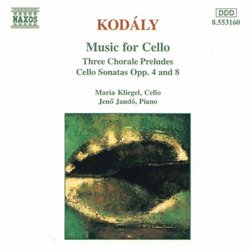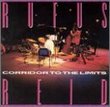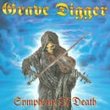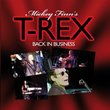| All Artists: Zoltan Kodaly, Jeno Jando Title: Kod�ly: Music for Cello Members Wishing: 0 Total Copies: 0 Label: Naxos Original Release Date: 1/1/1996 Re-Release Date: 12/17/1996 Genre: Classical Styles: Chamber Music, Instruments, Strings Number of Discs: 1 SwapaCD Credits: 1 UPC: 730099416023 |
Search - Zoltan Kodaly, Jeno Jando :: Kod�ly: Music for Cello
 | Zoltan Kodaly, Jeno Jando Kod�ly: Music for Cello Genre: Classical
|
Larger Image |
CD DetailsSimilar CDs
|
CD ReviewsIn my opinion, the finest solo cello work since Bach. Bob Zeidler | Charlton, MA United States | 12/31/2002 (5 out of 5 stars) "Zoltán Kodály's Sonata for Solo Cello, Op. 8, must rank as one of the greatest tour de forces ever written for a solo instrument, stringed, keyboard or otherwise. In a phrase, it utilizes every conceivable technique (frequently two or more of them simultaneously) over its three movements covering a duration of thirty minutes: "Off-tuned" strings, double-stops, triple-stops, multiple harmonics, pizzicato (both without and with simultaneous bowing), col legno (playing with the wood of the bow against the strings), arpeggios of incredible range and difficulty, and anything else that I might have overlooked. The work truly explores the limits of the instrument, and in fact achieves results that no previous such cello work had ever done, and very few since have. Despite (or perhaps because of) its great technical difficulty, the Sonata comes off in many spots as sounding highly imrpovised, rather than written down. And, while there are hints of folk dances in some of the rhythms (particularly in the last movement) that give the work a superficial sense of being Bartókian, rather than a work by Kodály, this is more by accident (of location and culture) than design; after all, Bartók and Kodály worked very closely together over a period of years, collecting and cataloging folk songs throughout Hungary and Rumania. At the same time - despite the technical challenges and the largely "rustic" nature of the material, all of this work - every note of it - is fine music as well: fully tonal and not particularly difficult to understand and appreciate on its musical merits alone. Not since Johann Sebastian Bach wrote his Suites for Unaccompanied Cello has such a solo cello work of such all-encompassing musical material been written. The technical demands require a cellist of ferocious virtuosity, absolutely fearless in performing the work if it is to be realized appropriately. While I can imagine that the work might be perfect for Janos Starker, that great Hugarian cellist (and in fact may have one of his several recorded versions of the work misplaced where I presently cannot find it), I also find that Maria Kliegel - as little known in the west as she might be - provides an absolutely bravura performance of the work. This Naxos CD is, so far, the only album of cello works I have that are performed by Ms. Kliegel, but it is enough to convince me that she is a great cellist, one to be reckoned with. This is not a work to be undertaken by the timid, and Ms. Kliegel pulls out all the stops in realizing the techniques and simply flying over the technical hurdles that the work presents to the artist, all the while providing a full, resonant tone where called for and almost unerringly accurate intonation everywhere, under every playing condition thrown out at her by the work and its difficulty. Kodály's Sonata for Cello and Piano, Op. 4, by comparison, is almost serene (and in fact is, in many spots). It is an absolutely ravishing work, frequently reminding us that not only Bartók but Kodály as well was heavily influenced by the music of Claude Debussy when young. The opening Fantasia: Adagio di molto might well have come from the pen of Debussy, both harmonically and in terms of its free-flowing rhythms. And the second (and concluding) movement, Allegro con spirito - Molto adagio, is not all that far removed from the Debussy connection somewhat more obvious in the first movement. It closes - in the adagio - with equally ravishing sounds as those with which the work opened. Maria Kliegel and Jenó Jandó are perfectly matched in this youthful near-impressionistic work. The three Chorale Preludes, written in the style of Bach (somewhat along the lines of Fritz Kreisler's solo violin salon pieces "written in the style of Pugnani"), are seemingly much more virtuosic for the pianist than the cellist, and the pianist is very much in the foreground, both musically and in terms of the acoustic perspective. In fact, a fair portion of the piano writing comes across not unlike the piano transcriptions that Ferruccio Busoni did of Bach's works (the most famous of which may well be Busoni's arrangement of the Toccata, Adagio, and Fugue for organ in C major, BWV 564, performed for all eternity by Vladimir Horowitz in his historic 1965 return to Carnegie Hall). Here, Jenó Jandó is stunning in his keyboard work, with articulation every bit as crisp as that of Horowitz, and Ms. Kliegel - here quite in the background and more restrained than in the other two works - is equally affecting and effective. These Chorale Preludes are very accessible works, not that the two main works aren't, and they are very likely to remind keyboardists (as I earlier stated) of the Busoni transcriptions of Bach works. In all, an inexpensive Naxos traversal of most of Kodály's compositions for cello, in performances and recorded sound that need no apology whatsover. Bob Zeidler" Don't! MartinP | Nijmegen, The Netherlands | 12/21/2002 (1 out of 5 stars) "I will grant that any cellist who is simply technically able to play this solo sonate deserves our respect, and no doubt Kliegel belongs to this group. As a poor little amateur I have spent many an hour listening to recordings of this piece while staring at the score, wondering about fingerings and how to bring it all off with only two hands... However, the recording industry has turned me into a spoilt brat, and then there are nowadays more cellists around able not only to play this piece, but to play it well, than some of my fellow reviewers would have you believe. Kliegel is simply not up to the standars set by, say, Wispelwey (Channel Classics)or, even more impressive, Claret on Harmonia Mundi. The Spaniard plays the piece with a relaxed ease and a depth of feelings that almost defy belief, whereas Wispelwey offers unsurpassed virtuosity and great passion. Listening to Kliegel after these two, you can plainly hear that though she can play it, it's hard work for her. There is little beauty of tone, and unwarranted and not very graceful 'grace notes' insert themselves during rapid string changes. Details in the many doublestopped passages tend to get blurred. On top of that Kliegel has a tiring and predictable rubato that gives me the same kind of queasiness as sitting in a car that is constantly accelerating and then slowing down again. The sound has a certain grayness, which maybe (partly or entirely) due to recording technics. In short, I have been greatly surprised by all the praise lavished on this recording, not only by some fellow reviewers, but also by Gramophone Magazine and the Penguin CD guide. More so because this recording is in fact INCOMPLETE! An entire page from the finale is simply skipped! An editing failure, maybe? But with or without that, you don`t need this recording. For the same coupling, Claret offers something far more beautiful, still at very low costs too. I wouldn't miss out on Wispelwey either if I were you, who offers as a companion piece one of the best readings ever of Shostakovich's First Cello concerto!" Blockbuster performances of Blockbuster music mahlerii@aol.com | Richfield, MN | 06/11/1999 (5 out of 5 stars) "If you thought that Kodaly was watered-down Bartok, listen to the Solo Sonata Op.8 and be amazed! Kodaly uses scordatura (tuning the strings to different pitches) and many other effects. The piece is extremely difficult for the soloist and lasts about 30 minutes! The music itself is a winding portrait of Hungarian Gypsy/Folk Music which is very moving and effective. Kliegel plays it for all its worth and then some. The sound is not always flattering, but you get used to it. The sound quality is better on the Sonata with piano, which is a more conservative work, but has more of Kodaly's trademark stamps. The chorale preludes are nice and effective transcriptions. Naxos has done it again, and for the price, you can't go wrong!"
|

 Track Listings (8) - Disc #1
Track Listings (8) - Disc #1


